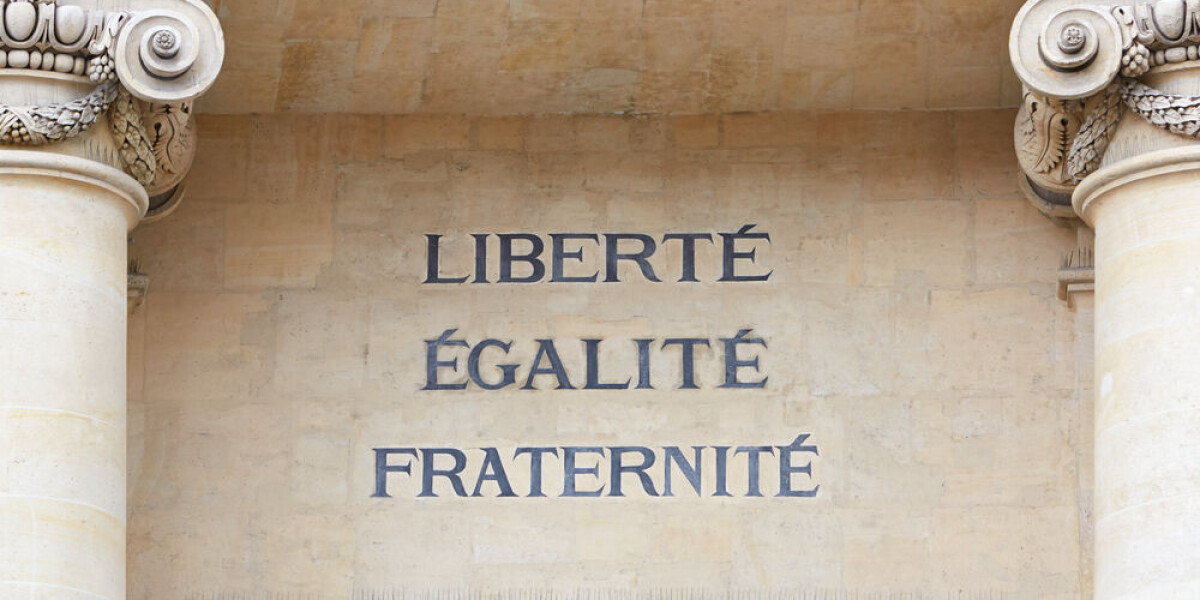
Five legacies of the revolution that affect france today
- Select a language for the TTS:
- UK English Female
- UK English Male
- US English Female
- US English Male
- Australian Female
- Australian Male
- Language selected: (auto detect) - EN
Play all audios:

THE FRENCH REVOLUTION WAS LONGER AND MORE COMPLICATED THAN MOST PEOPLE REALISE - HERE ARE FIVE THINGS THAT IT CHANGED FOREVER What did the French Revolution ever do for us, eh? It upset a
social order – the _ancien régime_ – and caused a lot of destruction and death as it experimented with different ways of doing things. The Revolution was a longer and more complicated period
than most people realise, lasting from 1789 to at least 1799, arguably longer. Some of the innovations lasted; some did not. Not all these reforms were completed during the Revolution but
they originated during it and were improved by trial and error in the aftermath. 1. THE LANGUAGE In 1789, not many French peasants spoke French. With 30-odd languages and dialects in use,
French was a foreign tongue to the majority of its population. Unifying the country linguistically was seen as a big deal. In 1793, ‘linguistic terror’ imposed French on the entire
population of the territory. Things did not change overnight and minority languages have persisted but from the Revolution onwards French acted as the lingua franca of the central
administration. READ MORE: FRANCE’S TUG-OF-WAR BETWEEN ITS REGIONAL LANGUAGES AND OFFICIAL FRENCH 2. THE METRIC SYSTEM Business depends on a high degree of standardisation. Over 800
measurement units were used in France prior to the Revolution and few of them were accurately convertible. The new scientific metric system replaced the panoply of units that were often
based on parts of the extraordinarily variable human body, such as the foot (_pied_) and thumb (_pouce_). Other measures that disappeared in the name of rationality included the _boisseau_
(bushel) and the _arpent_ (acre). 3. EQUITABLE AND HUMANE CAPITAL PUNISHMENT If the state had the right to use the death penalty on miscreants, the Revolutionaries argued, it did not have
the right to treat comrades with cruelty. The guillotine was adopted in 1792 as the sole method of execution used by the state. It may seem barbaric to us but it was an improvement over
other methods of execution, such as death by hanging, drowning, or burning. Worst of all was the wheel which broke the limbs and backs of the condemned person while his face was ‘turned to
Heaven… until it pleased God to end his suffering’. READ MORE: ROBERT BADINTER, THE MAN WHO ENDED THE DEATH PENALTY IN FRANCE, DIES 4. LIBERTY, EQUALITY, FRATERNITY The slogan of the French
Republic may sound like a platitude but it is redolent with meaning. The Revolution attempted to treat all men as equals. Women would have to struggle a lot longer for equal rights. Liberty
was established as the ideal opposite of tyranny and fraternity indicated that society was a shared endeavour. Today, the intention to live up to the slogan is still something that unites
rather than divides. 5. THE SEPARATION OF CHURCH AND STATE The Revolutionaries were wary of religion’s power of sustaining and justifying economic and political subjugation. They
experimented with the abolition of religion and with the creation of a secular state religion. They set in motion a debate that would last a century until the Catholic church was formally
separated from the French state. RELATED ARTICLES WHY FRANCE'S NATIONAL SYMBOL - THE GALLIC COCKEREL - IS UNDER THREAT FIVE ARISTOCRATIC TITLES THAT STILL EXIST IN FRANCE TODAY IS ‘DE’
A SIGN OF BEING FROM A ‘POSH’ OR NOBLE FRENCH FAMILY?
